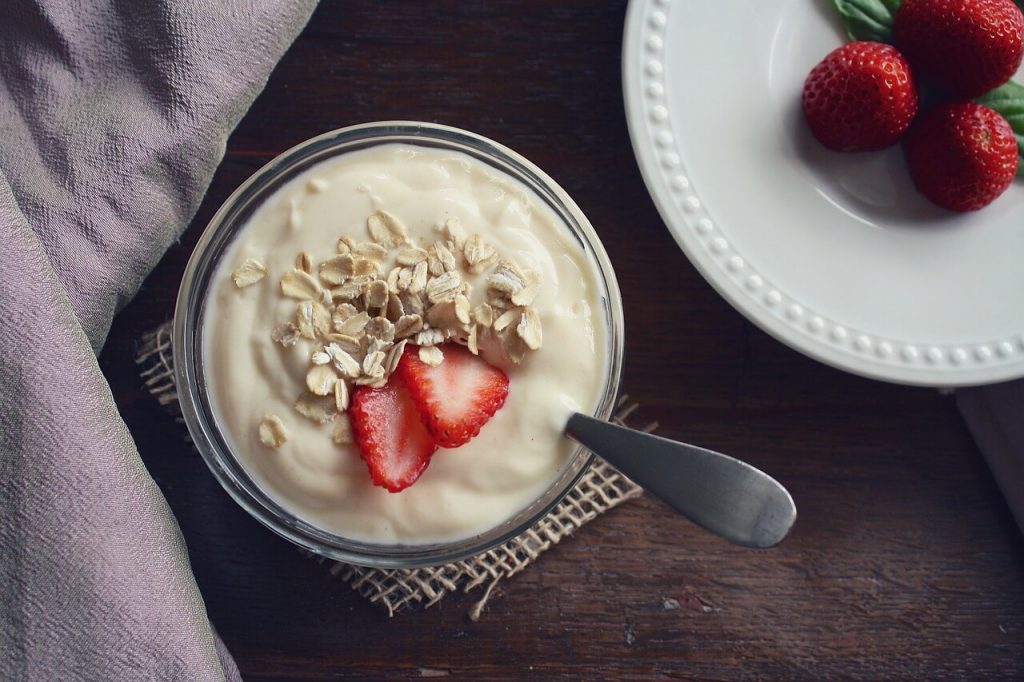Could science be revolutionising the global food system? Recent reports have documented lab-grown ‘meats’ and Real Vegan Cheese made from lab ‘milk’ but now, global bioscience company Chr. Hansen has developed cultures for vegan dairy alternatives.
Vegan yogurt that tastes like the ‘real thing’ could soon be possible as Chr. Hansen is renowned for their development of cultures which bring out the best taste in food yet meet the demands of increasingly selective consumers. This is aptly put by The Global Marketing Manager of Fresh Dairy, Lasse Vigel Joergensen as follows, “[a] product can be as healthy as you could possibly imagine; but if it doesn’t taste good, it will never take off. The good taste and the opportunity to choose between appealing flavors are what will keep consumers coming back.”
While there is an existing range of vegan yogurt alternatives – usually made from coconut or soy – sometimes they pale in comparison to the yogurt that new vegans are familiar with. Chr. Hansen‘s new cultures come in response to the increasing demand for vegan-friendly foods and products, alongside a rise in health-conscious consumers. As the old saying goes, “if you don’t listen to your customers, someone else will.”

This new probiotic fermentation culture is set to bring plant-based yogurts the smooth texture of traditional yogurts with a mild fresh taste. The latest marketplace trend is increasingly plant-based so this new product range aptly reflects how companies are tapping into the opportunities present within the current marketplace.
Alongside the cultures, Chr. Hansen is releasing another two alternative dairy concepts which are developed to present the new culture portfolio to customers. These are ‘SoyFresh’ (leverages the good qualities of traditional yogurt sans stabilisers) and ‘CoCoFresh’ (an on-trend yet high-fat product made from coconut milk).
Considering that about 75% of the world’s population is lactose intolerant – it should come at no surprise that an Innova Market Insights analysis of the past 5 years of new product launches found there is a CAGR (Compound Annual Growth Rate) of +12% for spoonable dairy yogurt yet a CAGR nearly four times that; at +42% for non-dairy spoonable yogurt.
Furthermore the demand for fermented dairy alternatives is also increasing – Innova Market Insights show a +35% rise from 2015 to 2016 in US food and beverages marketed as a fermented product. These figures reinforce the idea that plant based sales are on the rise and this is expected to continue.

To better understand the consumer attitudes towards dairy products and the relative usage, Chr. Hansen commissioned a survey. According to FoodIngredientsFirst, the results show that “Dairy alternatives are seen as a supplement to the existing dairy-based products enabling more choice and dietary options. The modern consumer values variation and more than half of the consumers asked have purchased a dairy alternative food or beverage.” and “[a]mong those, 77 percent want to see more options in the grocery store, indicating that dairy alternative products have a lot of room for growth.”
Joergensen said “As the market leader for starter cultures, we intensively study the new market needs and track up-and-coming trends that change the food and beverage industry. Now we are ready to launch a series of cultures for dairy alternatives that enable the producer to make healthy plant-based products with the qualities we traditionally ascribe to dairy yogurt.”
Adding, “First and foremost our cultures bring the mild and fresh taste and smooth texture we know from yogurt into plant-based alternatives. They produce safe and healthy products, and with a version of “world’s best documented probiotic” Bifidobacterium BB-12, we can bring the goodness of probiotics to consumers who do not consume dairy yogurts on a daily basis.” Gastrointestinal health has been scientifically proven to be supported by BB-12.
Could this development revolutionise the yogurt industry?


